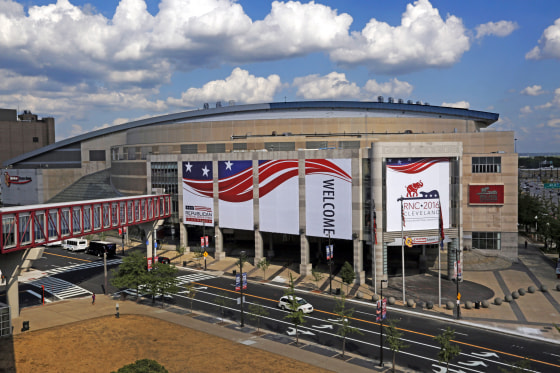"The Republican Party has not yet voted on a Platform," Donald Trump declared via Twitter this morning. "No rush. I prefer a new and updated Platform, short form, if possible."
There's been ample reporting this week suggesting the president has this backwards. The RNC's executive committee met on Wednesday, and by all accounts it agreed to recycle the party's 2016 platform.
I made the case yesterday that this is emblematic of a post-policy party that's lacking in meaningful governing goals and substantive priorities. But as it turns out, that's not the only problem. Politico reported overnight:
A vote by the Republican National Committee to leave the party's 2016 party platform unchanged ahead of the November election has infuriated grassroots activists -- including moderates who wanted to streamline its message and social conservatives who sought added language on emerging hot-button topics.
Right. Exactly. What we're seeing are Republican constituencies who are voicing their frustrations because they expected their party to act like, well, a political party.
Not to put too fine a point on this, but major parties are supposed to do this often-unpleasant work every four years: like-minded partisans get together to iron out the details of their party's goals, priorities, principles, and values. In many instances, the process has been contentious and difficult, with partisans quarreling over every detail, but that's because they care about their party's substantive direction.
The policy landscape in 2020 is not identical to the one the nation saw in 2016, and there are Republican contingents that wanted to fight it out over what the party thinks -- officially and in writing -- about the issues that define our time. The RNC's executive committee decided it'd be easier to simply punt those debates to 2024 -- even as the party's president pretends that decision wasn't made at all.
Politico's report added, "The decision by the party's executive panel Wednesday means the GOP will maintain positions in the four-year-old policy blueprint -- including opposition to same-sex marriage and a nod to gay conversion therapy -- and decline to stake out new positions on topics such as police reform, gender identity and third-trimester abortions."
The party is supposed to have those debates -- which is to say, it's supposed to care about having those debates -- and the public should have an opportunity to see the results of the intra-party negotiations. To dust off an old platform and slap a "2020" on it is to signal the Republicans' disinterest in the substantive fights of the day.
To be sure, there are practical considerations. The New York Times noted, for example, "The decision to simply let the current platform stay in effect, rather than try to pass any new platform, was ultimately driven by logistics, officials said. Republican officials decided it did not make sense to ask about 5,000 delegates and alternates to pay to fly to Charlotte, N.C., when the speeches and most of the action of the convention, including the hallmark speeches by the president and the vice president, would be happening in another city altogether."
The convention is, however, a few months away. There's time for a platform production process, clumsy as it may be under the circumstances. (Democrats, for example, are in a similar boat, but there's been no suggestion that the party will reuse its four-year-old platform.)
Making matters just a little worse, a Washington Post analysis noted yesterday, "[I]t's also notable because some of the language in the platform decrying what the 'current administration' and 'the president' have done can just as easily be used against the current occupant of the White House."
It's an inconvenient detail Republicans would probably prefer to ignore, but their 2016 platform denounced, among other things, shunning U.S. allies, an over-reliance on presidential executive orders, a rapidly increasing national debt, the White House's inability to generate economic growth above 3%, any effort to undermine the value of government whistleblowers, and the United States' declining "standing in world affairs."
Or put another way, the 2016 Republican platform reads like a rather brutal condemnation of Donald Trump. Perhaps the RNC should've taken the time to read their platform before re-embracing it for another four years?
